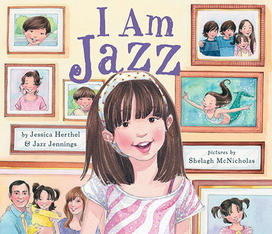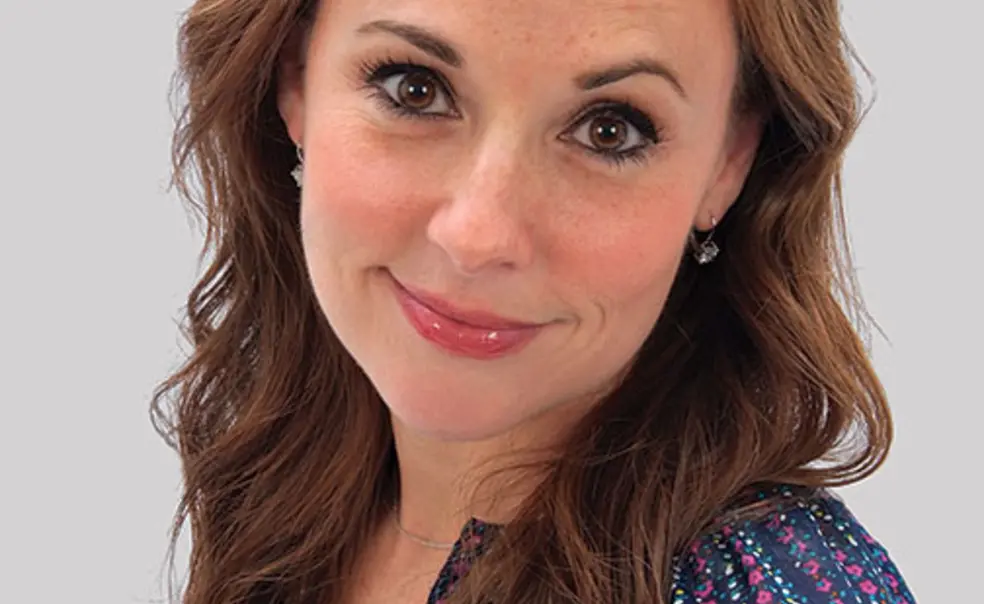
Jessica Mayer Herthel ’96 got involved with LGBT issues the day she watched her daughters argue over who would get to be the bride in their play wedding.
“I said, ‘You can both be the bride,’” Herthel recalls, “and my 5-year-old said, ‘That would be weird.’” A former employment lawyer who lives in Weston, Fla., with her three children and husband, Jason, Herthel began helping school districts with training and guidance on issues involving gay students. Eventually, she became director of education at the Stonewall National Museum and Archives in Fort Lauderdale, which preserves and shares the culture of those who are lesbian, gay, bisexual, and transgender.
In September, the Penguin Group published I Am Jazz, a children’s book Herthel wrote with 14-year-old Jazz Jennings, who has, since the age of 6, spoken publicly about being transgender. The book, which is for children ages 4–8, describes Jazz’s fondness for soccer and mermaids, and has illustrations of her playing dress-up in princess gowns with her best friends, Samantha and Casey. Then Jazz says, “But I’m not exactly like Samantha and Casey. I have a girl brain but a boy body. This is called transgender. I was born this way!” She explains, “Pretending I was a boy felt like telling a lie.” She describes how her parents, after consulting with a doctor, let her wear girls’ clothes to school, grow her hair long, and change her name to Jazz. Herthel’s profits from the book go to the TransKids Purple Rainbow Foundation.
Herthel took on the project because “after seeing how easily my own kids were able to understand a very basic explanation of what transgender means, I realized we could create a teaching tool for other young kids,” she says. “It’s not necessary to postpone this conversation until middle or high school. The message of ‘be who you are, no matter what’ is applicable to children of any age.” She hopes guidance counselors will read the book to classes, especially those with children who are struggling with gender identity and don’t have the words to express what they are experiencing.
What she’s reading: Revolution, by Russell Brand. “It’s a mistake to dismiss Russell Brand as merely a Hollywood actor or an ex-junkie. His profound observations on spirituality, civic responsibility, and society’s potential to evolve have impacted my way of thinking.”













2 Responses
Walter Weber ’81
10 Years Ago“Mind-Body Tension”
“Pretending I was a boy felt like telling a lie.” So says “Jazz” Jennings, a boy who is pretending to be a girl (“A Child’s Perspective on Being Transgender,” Princetonians, Feb. 4). Something is very wrong with this picture.
In the 1979 movie Breaking Away, an American boy assumes an Italian persona and, while in it, woos a college girl. When she learns he is not really an Italian native, she feels deeply betrayed — and understandably. He lied to her! And it would be no defense to say he felt that “inside” he was really Italian, or that he thought keeping up the ruse was the best option for all involved.
We are men or women, male or female. Those who feel like mismatches on the inside have real feelings, but their biology remains what it is. To treat the feelings as trumping biology is not to be honest; it is to exalt subjectivity over reality. The solution is not to patronize the person feeling the mismatch by calling him “her” and agreeing he is a girl. That’s like telling the asylum resident, “Yes, yes, you are really Napoleon.” Such people need love and support, not illusions that dodge the underlying mind-body tension.
Co-author Jessica Mayer Herthel ’96 should listen to the wisdom of her daughter. When Herthel proposed treating sexual differentiation as irrelevant, her 5-year-old said, “That would be weird.” And more to the point, it does no one any favors.
Kabir Mahadeva ’81
10 Years AgoThe Gender Spectrum
In his letter to PAW (Inbox, May 13), my classmate Walter Weber ’81 sees gender as binary — “men or women” — and thus chooses to ignore that biology and psychology both recognize individuals as finding themselves on a spectrum. For example, in Mr. Weber’s worldview, how should a hermaphrodite self-identify? His comment that “such people need love and support, not illusions,” comes across as patronizing, and equating transgender people to mental-illness patients.
Mr. Weber’s conservative ideology trumps his willingness to accept norms that fall outside his narrowly and inaccurately drawn boundaries.